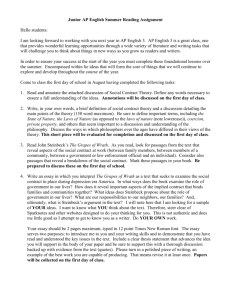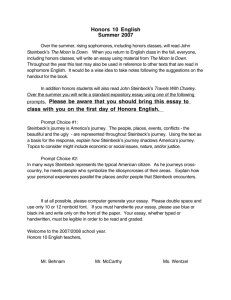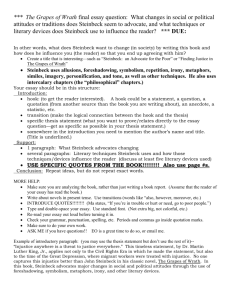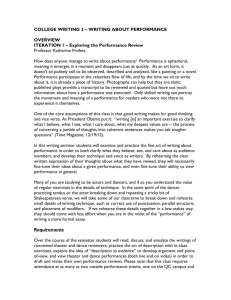al 201.02 survey of american literature
advertisement
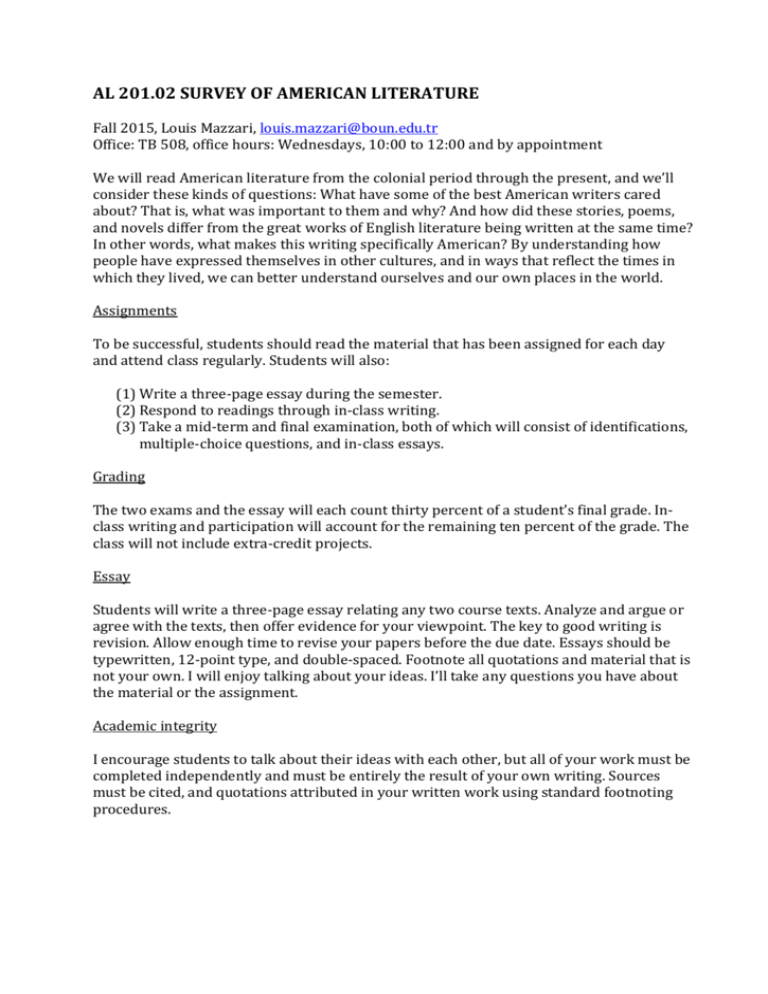
AL 201.02 SURVEY OF AMERICAN LITERATURE Fall 2015, Louis Mazzari, louis.mazzari@boun.edu.tr Office: TB 508, office hours: Wednesdays, 10:00 to 12:00 and by appointment We will read American literature from the colonial period through the present, and we’ll consider these kinds of questions: What have some of the best American writers cared about? That is, what was important to them and why? And how did these stories, poems, and novels differ from the great works of English literature being written at the same time? In other words, what makes this writing specifically American? By understanding how people have expressed themselves in other cultures, and in ways that reflect the times in which they lived, we can better understand ourselves and our own places in the world. Assignments To be successful, students should read the material that has been assigned for each day and attend class regularly. Students will also: (1) Write a three-page essay during the semester. (2) Respond to readings through in-class writing. (3) Take a mid-term and final examination, both of which will consist of identifications, multiple-choice questions, and in-class essays. Grading The two exams and the essay will each count thirty percent of a student’s final grade. Inclass writing and participation will account for the remaining ten percent of the grade. The class will not include extra-credit projects. Essay Students will write a three-page essay relating any two course texts. Analyze and argue or agree with the texts, then offer evidence for your viewpoint. The key to good writing is revision. Allow enough time to revise your papers before the due date. Essays should be typewritten, 12-point type, and double-spaced. Footnote all quotations and material that is not your own. I will enjoy talking about your ideas. I’ll take any questions you have about the material or the assignment. Academic integrity I encourage students to talk about their ideas with each other, but all of your work must be completed independently and must be entirely the result of your own writing. Sources must be cited, and quotations attributed in your written work using standard footnoting procedures. Class schedule by week 28 September Introduction, “Puritanism”: William Bradford, Anne Bradstreet, Mary Rowlandson 5 October Benjamin Franklin, Thomas Jefferson, Jean de Crevecouer 12 October Washington Irving, Frederick Douglass, Abraham Lincoln 19 October “Transcendentalism”: Ralph Waldo Emerson, Henry David Thoreau, Nathaniel Hawthorne 26 October Edgar Allan Poe, Emily Dickinson, Walt Whitman 2 November Herman Melville, “Realism”: Mark Twain 9 November Henry James 16 November Henry James; midterm exam 23 November Kate Chopin; “Modernism”: T.S. Eliot, Ezra Pound, Gertrude Stein, Wallace Stevens, William Carlos Williams, Langston Hughes, e e cummings 30 November F. Scott Fitzgerald, Ernest Hemingway, William Faulkner 7 December Eudora Welty; John Steinbeck 14 December John Steinbeck, Flannery O’Connor, Allen Ginsberg, Theodore Roethke, Elizabeth Bishop 21 December James Baldwin, Raymond Carver, Don DeLillo “Postmodernism”; essay due To be announced Final exam








